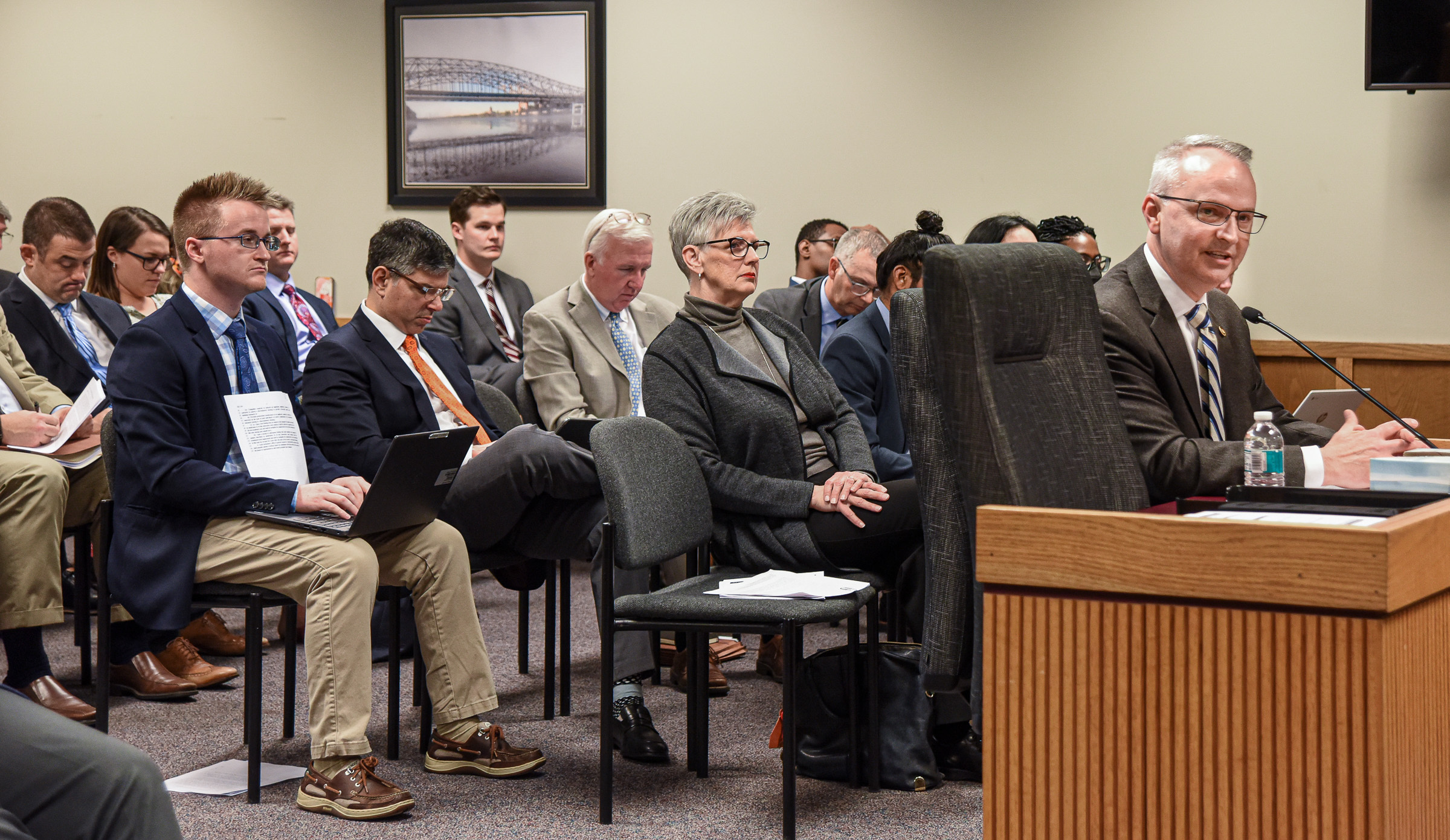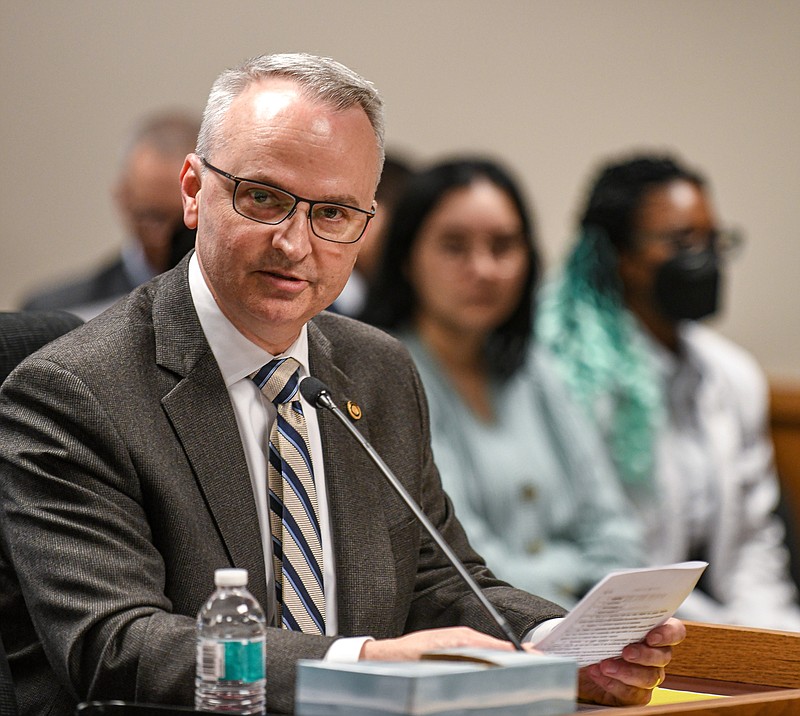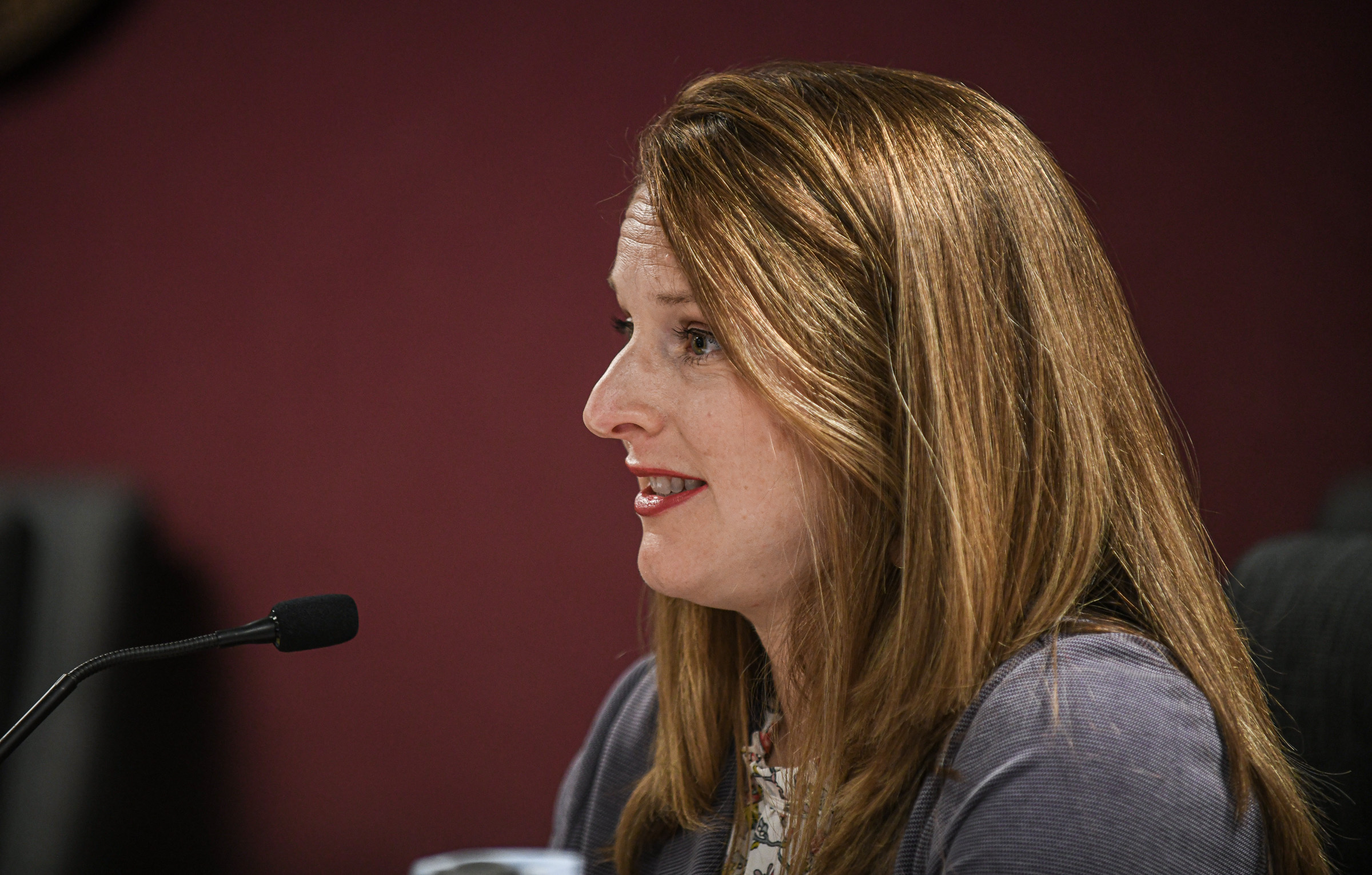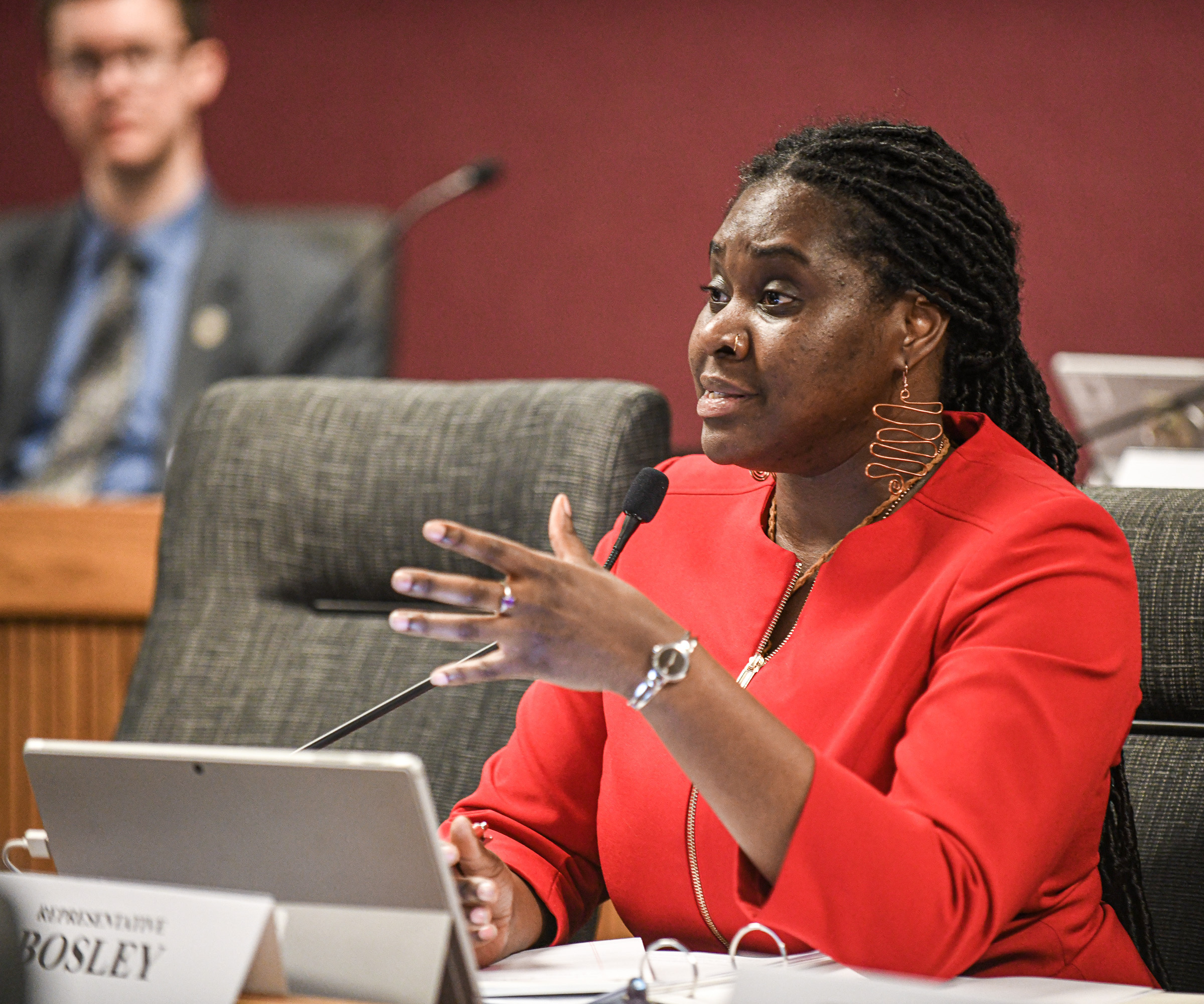Missouri's public colleges and universities may no longer be able to require diversity, equity and inclusion statements when hiring personnel under a bill working through the state Legislature.
Rep. Doug Richey, R-Excelsior Springs, presented HB 1196 to the House Special Committee on Government Accountability Monday afternoon. Discussion on the bill largely centered around defining diversity, equity and inclusion as concepts and how they should interact with education settings.
HB 1196 defines "discriminatory ideology" in state statute and bans public institutions of higher education from requiring any applicant, employee, student or contractors from endorsing it. The bill also prevents institutions from requiring applicants, employees, students or contractors to submit a diversity, equity and inclusion statement.
If made law, those in violation could be placed on unpaid leave for an academic year and barred from working at other colleges or universities while on leave. A second offense would result in the employee's termination and a five-year ban on working at Missouri colleges and universities.
The bill requires each of Missouri's institutions of higher education to submit a written compliance report every year to the Senate and House leaders.
The bill doesn't restrict classroom discussions, research or coursework related to diversity, equity and inclusion, Richey said, and wouldn't prevent an applicant from disclosing information related to their research or artistic creations.
Richey said he was moved to file the bill after he was approached by professors at the University of Missouri-St. Louis. He said the use of diversity, equity and inclusion statements are increasingly part of application and promotion processes at colleges in Missouri, and he's seen evidence of it at Missouri State University, University of Central Missouri and the University of Missouri-Kansas City. Republicans on the committee said they've heard from students about diversity, equity and inclusion requirements as well.
"This is an issue, it is happening and I think we need to stop it for the sake of diversity of thought," Richey said.
Democrats on the committee repeatedly panned the measure as a bill in search of a problem. They asked what was wrong with promoting diversity, equity and inclusion in higher education and having a "well-rounded staff."
Diversity, equity and inclusion generally refers to a framework that advocates for the full participation and fair treatment of all populations in, say, a workplace or classroom.
Richey said it's problematic to bring "lightning rod" political issues to hiring processes. He said diversity, equity and inclusion is inherently political because it is tied to some ideologies, like Marxism.
"There are ideologies that are baked into some of these perspectives that, quite frankly, are rejected by a large population within our state and even often a campus itself," Richey said.
"We're much better off in the university context having people who have very different perspectives from one another, rather than just a homogeneous thinktank," he continued.
Richey said the bill will be of service to university administrators looking to shield themselves from volatile situations on campus.
Rep. Barbara Phifer, D-St. Louis, said she's concerned Richey's bill approaches the topic of diversity, equity and inclusion from a limited perspective. She said she first learned about equity as a child through her Southern Baptist Sunday school.
"What's Marxist about this?" she asked a witness testifying in support of the bill. "I keep hearing it's politicized, it's Marxism. Where?"
Rep. Stephanie Hein, a Springfield Democrat and educator for 20 years, questioned how universities and colleges could ensure their faculty and staff are skilled in managing classroom conflicts or handling conversations about race before putting them in front of students.
Richey said there are other ways to vet applicants besides diversity, equity and inclusion statements.
Colleges and universities should be vetting out racist, homophobic or sexist teachers, said Rep. Doug Mann, D-Columbia. Views on diversity, equity and inclusion affect an instructor's ability to teach, he said.
"Your ability to understand students, your ability to empathize with students, that's caught up in your views on DEI," Mann said.
Republicans on the committee wanted age, veteran status and sexual orientation to be added to the bill's list of protected classes but otherwise voiced support for the legislation.
Rep. Maggie Nurrenbern, D-Kansas City, said lawmakers should be focused on keeping college students in Missouri, adding that the student population is growing increasingly diverse.
Rep. LaKeySha Bosley, D-St. Louis, said she would be voting against the bill because of its potential impact on campuses.
"I think this bill is absolutely discriminatory, and I believe that is in itself not something that we as the state should be promoting because it will ... drive our scholars out of their institutions as well as deplete our workforce," she said.
"This legislation is an attempt to maintain the status quo, and that's not alright," Rep. Marlon Anderson, D-St. Louis, said. "Things like this are going to stop amazing minds from matriculating and teaching in Missouri."
The committee heard a single witness in support of the bill and a single witness in opposition to the bill before calling a recess.
Several legislators pointed out the bill is pushed by the Cicero Institute, a Texas-based nonprofit. Jared Meyer represented the organization in advocating for the bill.
Nicole Neville, a second-year medical student at Kansas City University, testified against it. As a Black college student, she said it's important to know the staff on campus has her best interests at heart.
"To sit here and make policy based off of things that you don't like and can't really define, we have to move past that," Neville testified. "We're better than this."
 Julie Smith/News Tribune
Rep. Doug Richey, R-Excelsior Springs, is shown speaking on behalf of HB 1196, legislation that he has proposed regarding protections against ideological discrimination in postsecondary education. Richey testified and answered questions Monday during a committee hearing in the Cqpitol.
Julie Smith/News Tribune
Rep. Doug Richey, R-Excelsior Springs, is shown speaking on behalf of HB 1196, legislation that he has proposed regarding protections against ideological discrimination in postsecondary education. Richey testified and answered questions Monday during a committee hearing in the Cqpitol.


